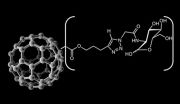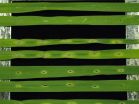Government corruption in South Africa contributes to overfishing
2015-03-12
(Press-News.org) "When I interviewed inspectors they are surprisingly open about this. They tell me that they get a box of fish or just some money from fishermen in exchange for being allowed to break the rules that apply to protected areas or catches," says Aksel Sundström.
Many of South Africa's marine fish stocks are overexploited. At the same time, the government actors that are meant to ensure that fishers abide to rules may be a part of the problem.
For example, one anonymous inspector is quoted to say: "A Chinese captain that was arrested last week called someone who arrived to the harbor with a wad of money. It is quite common ... Imagine these boats, how much money they carry. And we earn so little ... We can make resources of half a million rand disappear from the books. So the temptation is always there."
A recently published research article develops the current understanding of how corruption affects the ability to control what is usually called "the commons". These commons are resources, such as fisheries and forest areas, which are in rivalry and where it is difficult to exclude users. The essay develops prevailing theories of how one can understand the monitoring of rules for sustainable use.
"Research usually says that regulations are promises of use of resources that can be monitored by the a state or by users themselves. This has been called 'covenants with or without a sword'. But given that corruption is so widespread in many countries, there is a third situation, 'covenants with broken swords'. In these situations the government inspectors are supposed to ensure that rules are followed, but due to bribery, resource users can pay inspectors to break rules," says Aksel Sundström.
Such violations have consequences in different types of resources: elephants and rhinos risk extinction because rangers can be bribed and therefore do not enforce policies to counter poaching. And in South Africa's fisheries sector corruption results in regulations that becomes almost useless.
"Inspectors in this sector clearly become part of the problem. Some act as informants and tips poachers in advance during joint police operations. And some inspectors are themselves engaged in illegal fishing! For example, while I was doing my interviews in early 2014 a police officer in the small city of Simon's Town was arrested with illegal marine resources for over hundred thousand US Dollars in his freezer," says Aksel Sundström.
The paper reported quotes from interviews with over 40 inspectors and key actors in the fisheries sector along South Africa's west and south coasts. Perhaps most surprising is how open everyone is talking about corruption.
"They are very open about how it is done. Maybe it's a little easier to talk about this with an 'outsider' who can guarantee their anonymity," says Aksel Sundström.
He continues: "One should remember that many of these inspectors face violent repercussions from poachers if they do not allow them to break rules. So increasing their security may in fact decrease bribe taking. Many inspectors want to act honest but face pressure to be a part of corrupt affairs"
INFORMATION:
The article Covenant with broken swords: Corruption and law enforcement in governance of the commons is published in Global Environmental Change, a high-ranking social science journal at: http://www.sciencedirect.com/science/article/pii/S0959378015000199 An early version in PDF format is available at http://www.qog.pol.gu.se/digitalAssets/1498/1498889_2014_10_sundstr--m.pdf
The essay received the Swedish Political Science Association's prize for the "best essay" during its annual meeting in Lund, Sweden, April 2014.
For more information please contact Aksel Sundström, e-mail: aksel.sundstrom@pol.gu.se.
ELSE PRESS RELEASES FROM THIS DATE:
2015-03-12
CHICAGO (March 12, 2015): A surgical approach in which a surgeon removes less than a lobe of the liver in a patient undergoing an operation for liver cancer is associated with lower mortality and complication rates, according to new study results published online as an "article in press" in the Journal of the American College of Surgeons (JACS). The article will appear in print in the April issue of the Journal.
Historically, the most common surgical method of treatment for liver cancer was a major hepatectomy in which a lobe (hemi-liver) is removed in order to remove ...
2015-03-12
Very low mammographic breast density worsens the prognosis of breast cancer, according to a recent study from the University of Eastern Finland. Disease free survivals as well as overall life expectancies were significantly shorter in women with very low-density breasts in comparison to women with high density breast tissue. The lower the breast tissue density, the less fibroglandular tissue there is compared to fat tissue.
In the future, these findings may prove significant for the assessment of breast cancer prognosis and treatment planning.
The study involved 270 ...
2015-03-12
WASHINGTON, DC, March 12, 2015 -- Actresses need to be pickier than men about with whom they work if they want to survive in the movie industry, suggests a new study.
"My research indicates that women in the film industry suffer a lack of access to future career opportunities when they tend to work with people who have collaborated frequently in the past," said Mark Lutter, lead author of the study and head of the "Transnational Diffusion of Innovation" Research Group at the Max Planck Institute for the Study of Societies (MPIfG) in Germany.
Titled, "Do Women Suffer ...
2015-03-12
WASHINGTON, D.C., March 12, 2015 - The American Educational Research Association has published a special edition of its peer-reviewed journal Educational Researcher (ER) devoted to examining value-added measures (VAM).
Since 2009, President Barack Obama's Race to the Top initiative has brought on a wave of value-added-based accountability measures, with value-added now embedded in policy in more than 30 states. AERA's journals have examined the validity and reliability of value-added measures over the past six years. This special issue of ER considers the key questions, ...
2015-03-12
Materials resulting from chemical bonding of glucosamine, a type of sugar, with fullerenes, kind of nanoparticles known as buckyballs, might help to reduce cell damage and inflammation occurring after stroke. A team from the Max Planck Institute in Germany has tested this on mice, opening the door to potential new drugs for the cerebrovascular accident.
The majority of stroke occurs when the blood vessels that reach the brain are blocked by clots or fatty deposits which decrease the flow of blood towards its cells. It is then that an ischemic attack occurs, a pathology ...
2015-03-12
Harvesting fire-killed trees is an effective way to reduce woody fuels for up to four decades following wildfire in dry coniferous forests, a U.S. Forest Service study has found.
The retrospective analysis, among the first to measure the long-term effects of post-fire logging on forest fuels, is published in the journal Forest Ecology and Management.
"Large wildfires can leave behind thousands of acres of fire-killed trees that eventually become fuel for future fires. In the past, post-fire logging has been conducted primarily to recover economic value from those fire-killed ...
2015-03-12
Loneliness may be a fundamental part of the human condition, but scientists have only recently begun exploring its causes, consequences, and potential interventions. A special section in Perspectives on Psychological Science, a journal of the Association for Psychological Science, aims to bring these strands of inquiry together, presenting a series of articles that review the current state of scientific research on loneliness.
The section, edited by psychological scientist David Sbarra of the University of Arizona, investigates loneliness across multiple levels, from ...
2015-03-12
CHESTNUT HILL, MA (March 12, 2015) Targeting deadly, drug-resistant bacteria poses a serious challenge to researchers looking for antibiotics that can kill pathogens without causing collateral damage in human cells. A team of Boston College chemists details a new approach using a "warhead" molecule to attack bacteria -- and spare healthy human cells -- by targeting a pair of lipids found on the surface of deadly germs, according to a report today in the journal Nature Communications.
The new strategy required the researchers to develop a novel type of "warhead molecule" ...
2015-03-12
Study links oddly shaped hippocampus to poor long-term memory in former marijuana users
The longer teens used cannabis, the more abnormal the hippocampus as adults
Former users perform 18 percent worse on long-term memory test
Cannabis affects short and long-term memory
CHICAGO --- Teens who were heavy marijuana users - smoking it daily for about three years -- had an abnormally shaped hippocampus and performed poorly on long-term memory tasks, reports a new Northwestern Medicine study.
The hippocampus is important to long-term memory (also known as ...
2015-03-12
A team of scientists from the John Innes Centre (JIC), the National Institute of Agricultural Botany (NIAB) and The Sainsbury Laboratory (TSL) have successfully transferred a receptor that recognises bacteria from the model plant Arabidopsis thaliana - a dicot, to wheat - a monocot. They showed that the receptor can trigger a defensive response and confers increased resistance to bacterial disease. The research findings demonstrate that the signalling pathways or circuitry downstream of the receptor are conserved between evolutionary distant monocots and dicots.
Drs Henk-jan ...
LAST 30 PRESS RELEASES:
[Press-News.org] Government corruption in South Africa contributes to overfishing

